11. A Better Tomorrow (John Woo, 1986)
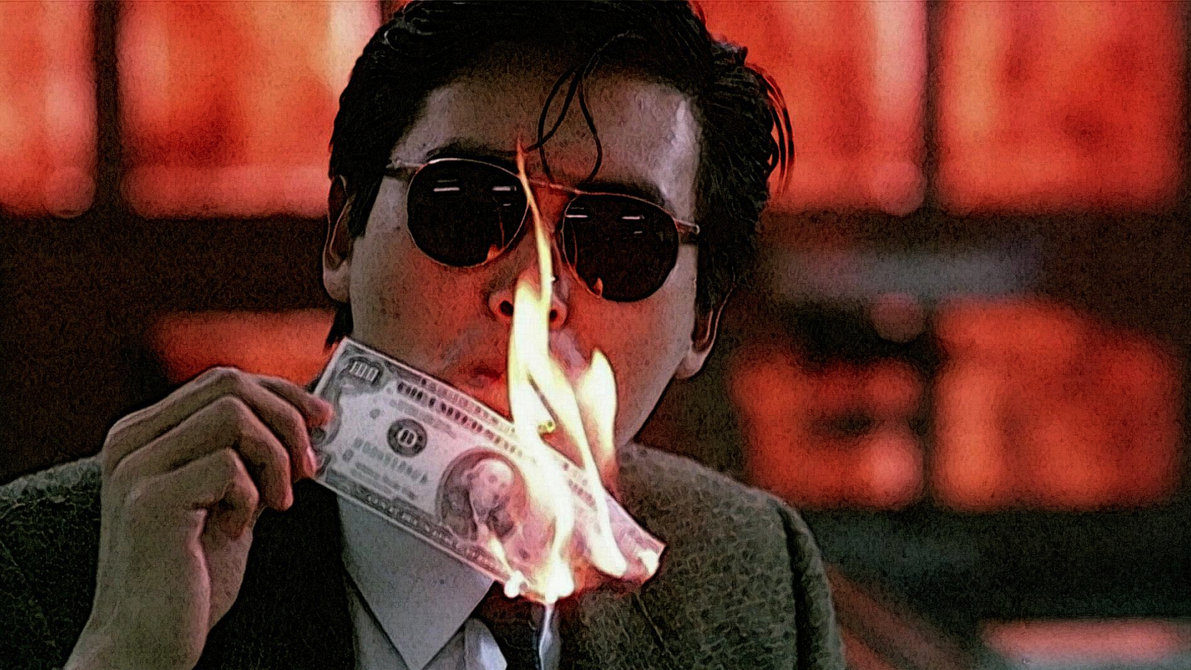
This particular production was a turning point for the industry, since it launched the careers of John Woo and Chow Yun Fat, reinstated Ti Lung (a former kung fu star who had fell into disfavor after his departure from Shaw Brothers), and established Film Workshop, the newly founded production company headed by Tsui Hark, as a brand of constant box office hits. Moreover, it was an immense hit throughout Asia and actually established the Heroic Bloodshed sub-genre in Hong Kong cinema.
The film tells the story of Tse Ho, who works for the triad, his best friend from the organization, Mark “Gor” Lee, and his brother, Tse Kit, who has just graduated from the Police Academy. The situation becomes even more complicated when Ho and Kit’s father is murdered and the latter blames the former for the death.
The film entailed a plethora of elaborate action scenes, widespread humor, some drama, and a very interesting script that appealed to the Hong Kong audience. Furthermore, the acting by all three protagonists (Ti Lung, Chow Yun Fat, Leslie Cheung) is artful and the direction included all of the distinct John Woo characteristics: violent yet stylish shootouts, harsh aesthetics, and the themes of brotherhood, family and loyalty within the modern society.
12. Police Story 2 (Jackie Chan, 1988)
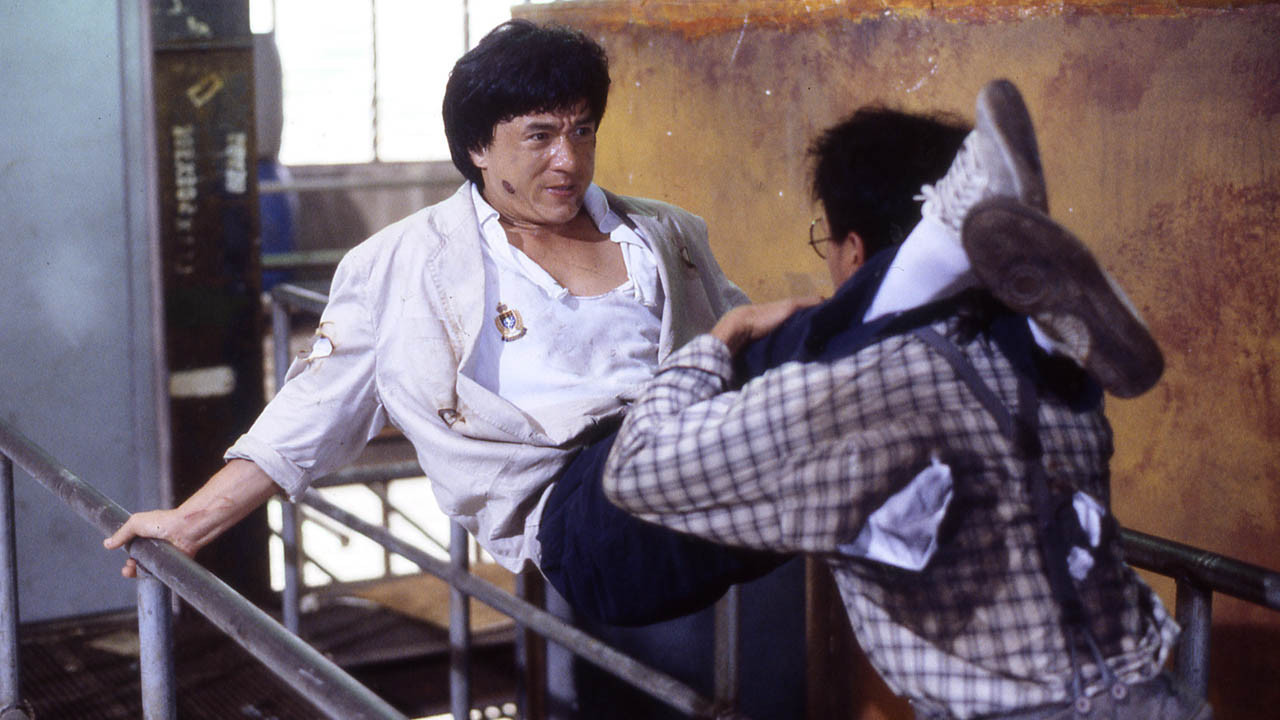
The film takes place right where the original left off, with Chan Ka Kui demoted to highway patrol due to his misconduct in the previous case. Moreover, his archenemy is released from prison due to a terminal illness, and has sworn to make Chan’s life a living hell, a notion he initiates by having his men attack his girlfriend, May. Filled with rage and a need for revenge, Chan is determined to get rid of his enemy by any way possible.
“Police Story 2” incorporated the same topnotch stunt work, elaborate fight scenes and comic elements of the first film. However, it also included a more competent script, better cinematography and a higher budget, which resulted in a far more impressive movie than its predecessor, and probably the best in the series.
Jackie Chan is astonishing in the film, presenting a number of the most impressive and dangerous stunts of his career. Lastly, the final 15 minutes include some of the most monumental action scenes of his vast filmography.
13. The Killer (John Woo, 1989)
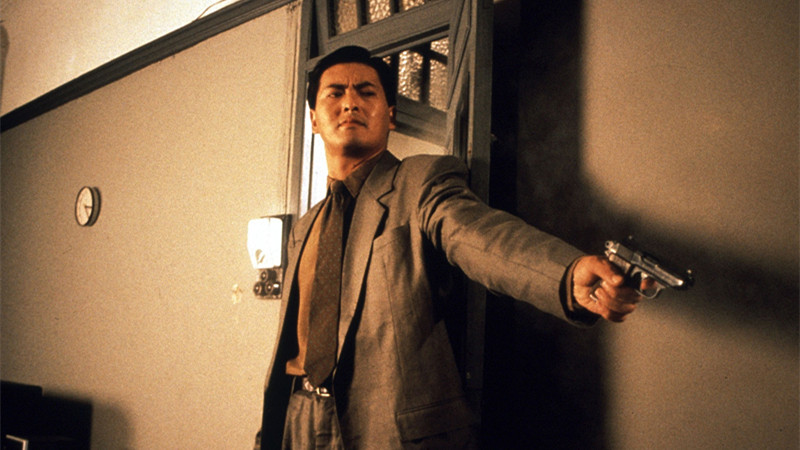
Having influenced filmmakers such as Quentin Tarantino, Robert Rodriguez, Johnnie To and Luc Besson, “The Killer” is a distinct example of Hong Kong action films and the one that launched the careers of both John Woo and Chow Yun Fat into global stardom.
Ah Jong is a hired assassin who decides to quit his line of work. However, in his last mission, he accidentally traumatizes a nightclub singer in the eye. To reimburse her, he decides to take on one more “job”.
Inspector Yi has been on Ah Jong’s heels for quite some time and is set to arrest him. Nevertheless, his boss eventually betrays the latter, and the two of them end up as allies taking on his former gang.
John Woo’s distinct style found its apogee in this film, with stylized action scenes, constant bloodbaths, the elaborate usage of guns, and the ever-present flying of pigeons, a tendency that initiated here. Furthermore, he used elements of romance, melodrama and a number of social issues, including religion and friendship. However, all of the above are just context for the action, which is artfully directed and choreographed, a fact particularly evident in the final scene in the church, which is one of the most ingenious scenes Woo ever shot.
Chow Yun Fat is sublime as Ah Jong, in a role that was created exclusively to exploit his smoothness and overall acting style.
14. Days of Being Wild (Wong Kar Wai, 1990)
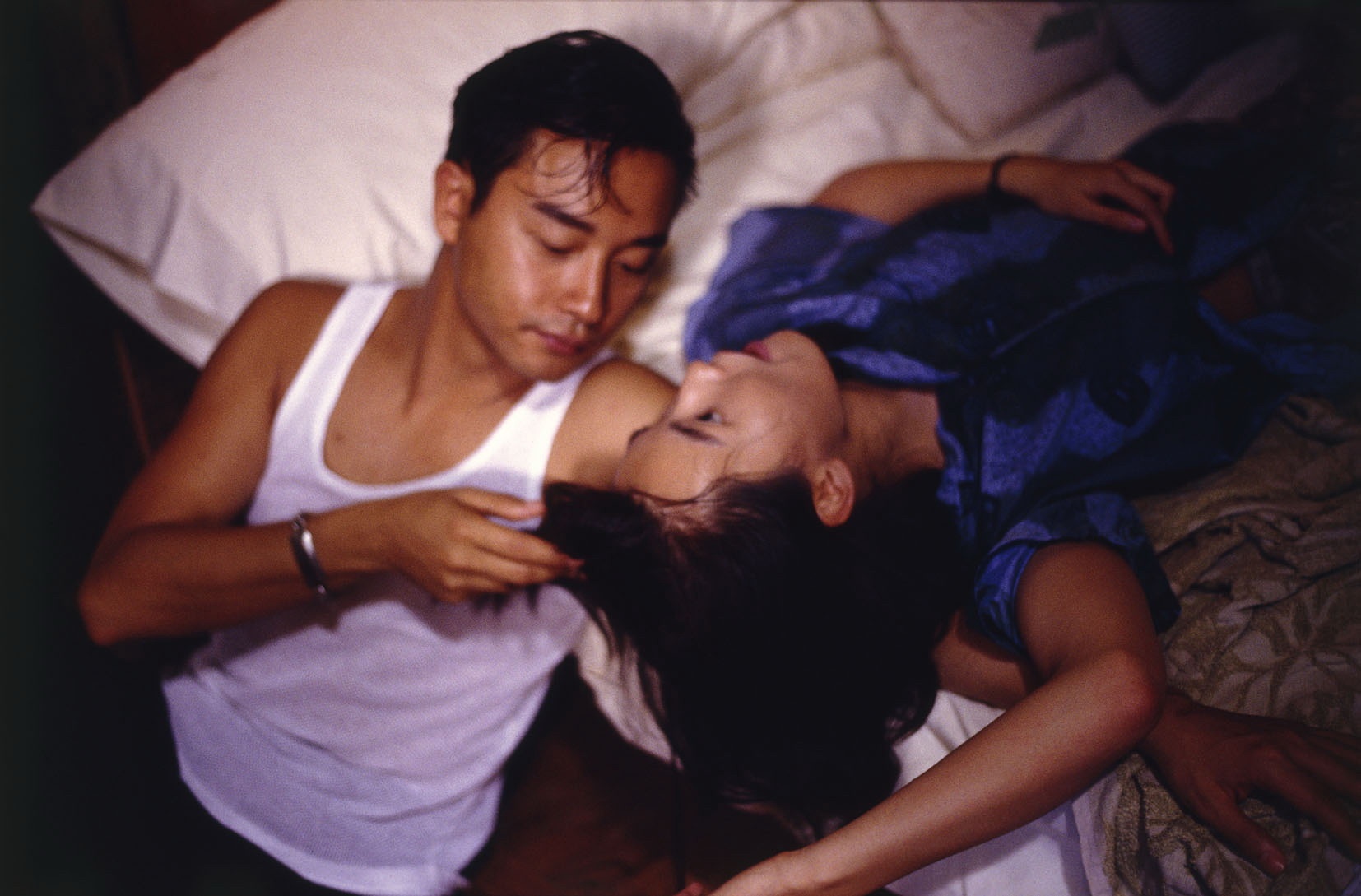
The script centers on Yuddy, a cold, fickle, self-centered but enchanting bachelor in the 60s, who is unable to commit to a relationship and tends to dismiss his girlfriends without caring for their hurt feelings. In the foreground of this film lie his romantic relationships with two women, his fight with his adopted mother (who is a high-end prostitute), and his futile travel to the Philippines to find his biological mother. Furthermore, the film presents the romantic relationships of two more men. Yuddy’s best friend Zeb falls in love with a stripper named Mimi, and a cop named Tide meets Su Lizhen.
Wong Kar Wai focuses on the characters’ inflexible relationships, their choices, their random encounters, and their mysterious connections. What connects all of the above is the presence of Yuddy, who instigates all of the relationships in the film with his general attitude and actions.
The film has a wonderful cast with actors who give some of their best performances, including Leslie Cheung as Yuddie, Maggie Cheung as Su Lizhen, and Rebecca Pan as Rebecca. Additionally, the cinematography by Christopher Doyle is sublime once more.
15. Once Upon a Time in China (Tsui Hark, 1991)
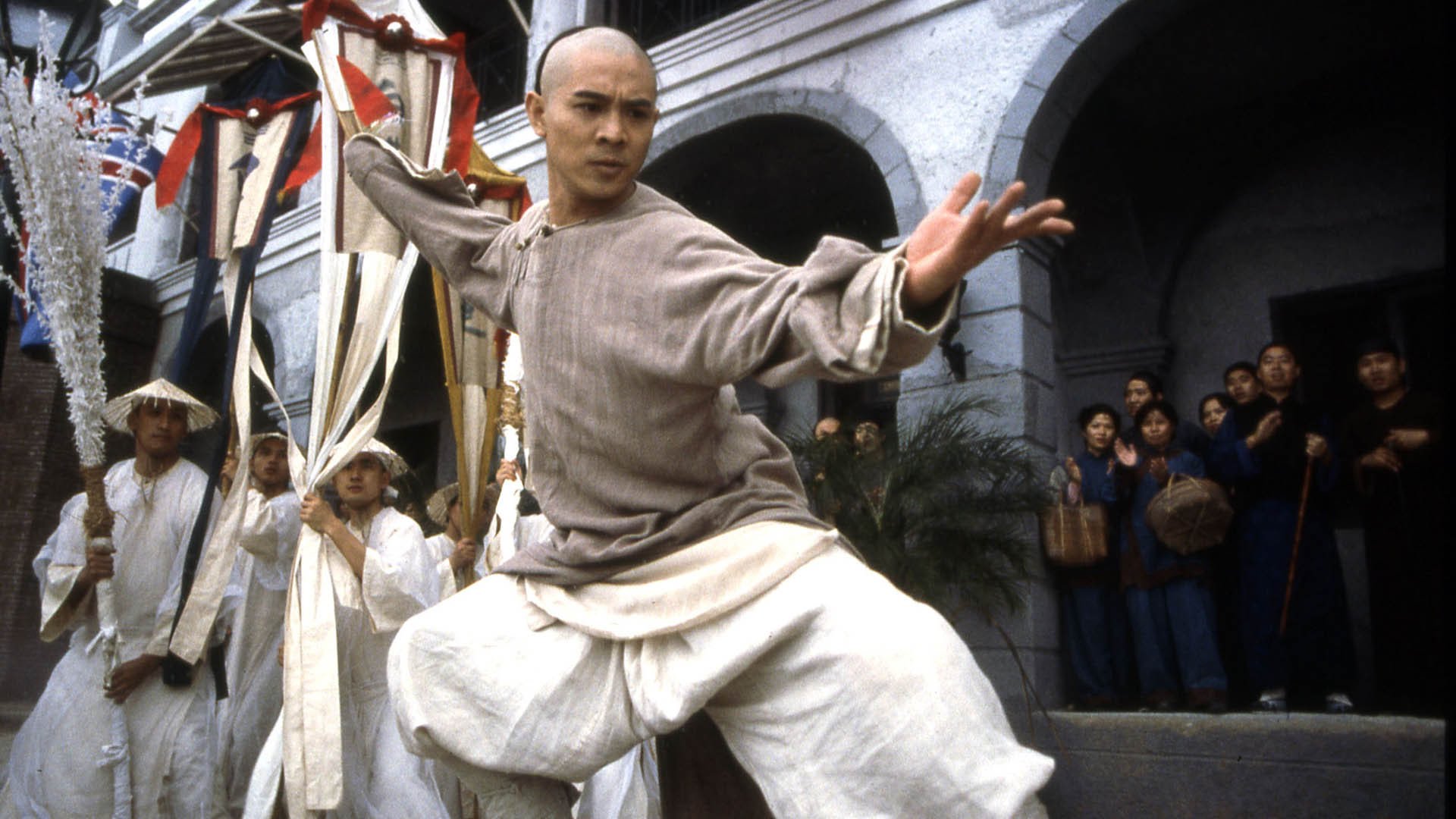
Displaying a winning combination with Tsui Hark as the director, Yuen Woo Ping as action director, Jet Li and Yuen Biao as the protagonists, and popular folk hero Wong Fei Hung as its main theme, this particular film had all the makings of a blockbuster and it delivered in astonishing fashion. It became a huge box office hit, was one of the main reasons for the wuxia craze of the 90s, and spawned six sequels.
In the first part, Wong Fei Hung, a chiropractor, doctor and martial arts specialist, has to face corrupt politicians, triads, and Westerners trying to divide China for their own benefit. Although he is a kind and calm man, he eventually has to resort to violence, when the militia he trains in the area is framed for terrorist acts and the clinic he owns is attacked.
The film incorporated some of the most impressive action scenes of the era, with Jet Li giving an astonishing performance. Particularly the two fights between Hung and “Iron Vest” Yim, and the one with the umbrellas, are considered as some of the most prominent of the careers of both Jet Li and Yuen Woo Ping.
Additionally, Tsui Hark incorporated elements of comedy, Chinese history and politics in this impressive, though at points incoherent and disconnected film.
16. Center Stage (Stanley Kwan, 1991)
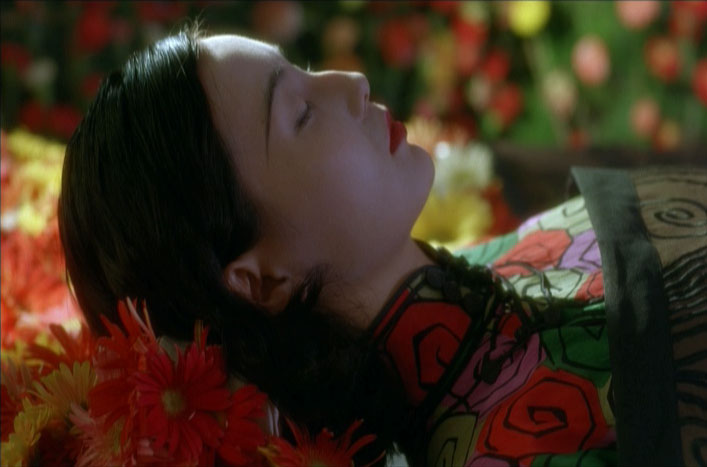
Part biopic and part documentary, this film attempts to present the real life of China’s first woman movie star, Ruan Lingyu, who began her career when she was 16 and committed suicide at 24.
Using a prototypical multi-layered approach, where he mixes archive footage from her movies, dramatization of scenes from her life, and contemporary interviews from the actors that play in the film and people who knew her, Stanley Kwan presents a film that moves around the boundaries between fiction and reality. Furthermore, the film functions as a documentary about China’s film industry in the 1930s, while maintaining, among all that, its melodramatic essence.
Maggie Cheung is sublime as Ruan Lingyu, playing the femme fatale to perfection, in one of the greatest roles of her career.
17. Hard Boiled (John Woo, 1992)
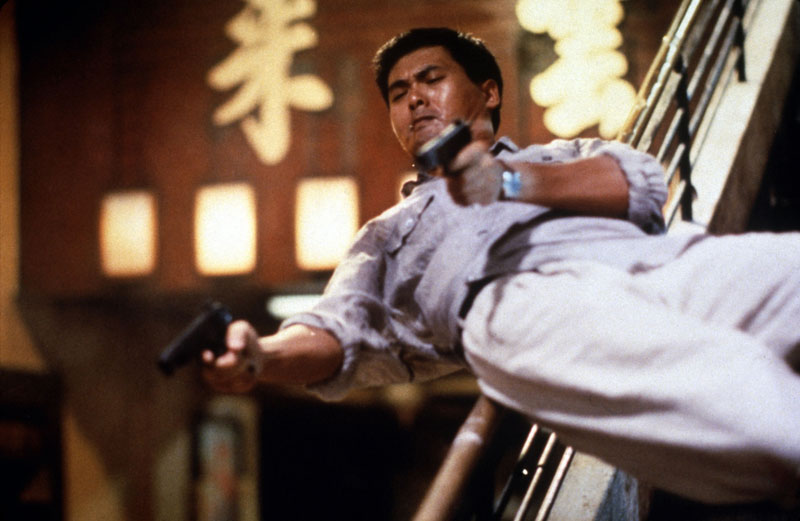
Inspector “Tequila” Yuen is a hardcore cop and the personification of justice, morality and of faith in the concept of friendship. The only thing that soothes his constant tension is the sound of his clarinet when he performs at a little jazz club. However, when an arms dealer kills his partner, Tequila resorts to extreme measures in order to arrest him. Alan is an undercover cop who has to betray his boss, who introduced him to the criminal underworld of Hong Kong in order to assist Yuen. On the other side of the law, Mad Dog has to defend the same morals with his life, although being in favor of crime.
John Woo incorporated all of his B- movie themes and techniques in this film, including the constant gunfights, the rapid changes between fast and slow motion, and the shooting with two guns at the same time. He even managed to produce a true masterpiece through them. Moreover, the depiction of violence is sublime in both style and action choreography and the film benefits the most by its protagonists, Chow Yun Fat as Tequila, Tony Leung as Alan and Philip Kwok as Mad Dog, who are wonderful in their parts.
18. Chungking Express (Wong Kar Wai, 1994)
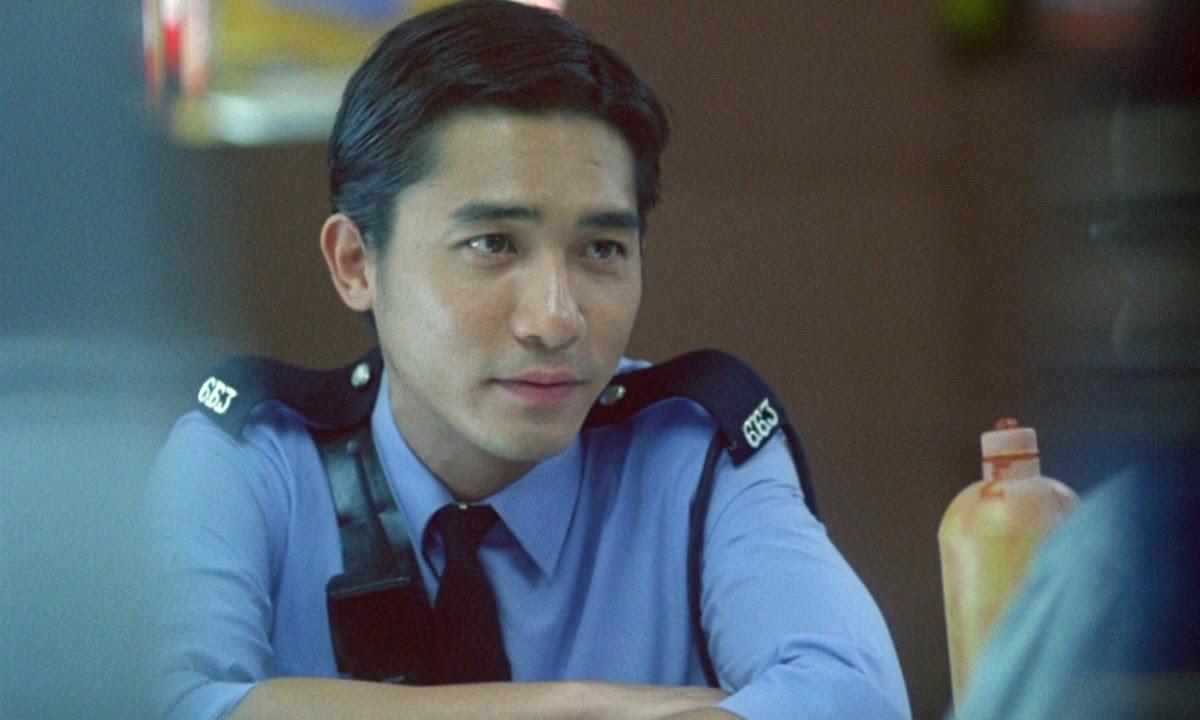
Cop 223 has separated with his girlfriend and eats 30 cans of pineapple every year on her birthday. A woman with a blonde wig tries to resolve her issues. The two of them will share their solitude for awhile. In another part of the town, cop 663, who is also separated, meets a peculiar waitress named Faye who is obsessed with the song “California Dreamin” by the Mamas and Papas and falls in love with him.
Wong Kar Wai created four lonely, separated, antisocial and daydreaming characters, who desperately try to share their desolation inside the megalopolis.
The first story is fast-paced and the editing is brisk, with the handheld camera moving rapidly inside the chaos of the night in the city. The second story is more slow-paced and has scenes occurring in closed spaces during the day. A technique where cop 663 stands still, while everybody else moves in fast forward, is used to elaborately portray his solitude.
“Chungking Express” showcased a great cast, including Brigitte Lin, Takeshi Kaneshiro, Tony Leung and Faye Wong. However, the one who stands apart is Leung, who is wonderful as 663, a silent and tough man who is interested in a woman but is afraid to express his feelings.
19. Endless Love (Derek Yee, 1994)
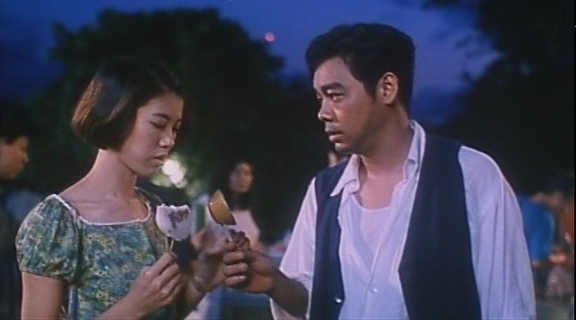
Remake of a 1961 Hong Kong film titled “Love Without End”, this particular film took the 13th Hong Kong Film Awards by storm, winning in six categories including Best Picture, and was also the breakthrough title for both of its protagonists.
Kit is a talented jazz musician, who is overshadowed by his star singer girlfriend, Tracy. Eventually, the two of them have a serious row that ends with them splitting up. Kit, being broke, moves to a rundown block flat where he succumbs to depression, until he meets a girl named Min living in the same building. She and her family are street singers and Kit soon realizes her talent as she slowly introduces him to the small joys of life, single-handedly erasing his despair.
After awhile, romance develops between the two, while he makes plans to start a new career with her. However, he soon discovers that the girl suffers from a terminal illness, a fact that reverses their roles with Kit having to help Min regain her will to live.
Derek Yee directed a highly realistic romantic drama, whose protagonists are down to earth, everyday people. However, Yee’s biggest virtue is that he manages to give a real emotional edge to simple notions, through a thorough analysis of his characters.
Lau Ching Wan gives a great performance as Kit, particularly due to the way he depicts his character’s depression and his subsequent exodus from it. However, the one who steals the show is Anita Yuen as Min, who makes the most out of her natural charm, elaborately presenting a character who moves in the opposite direction of Kit. Moreover, the chemistry between the two is one of the film’s greatest assets, as are the performances by the rest of the cast.
20. Fist of Legend (Gordon Chan, 1994)
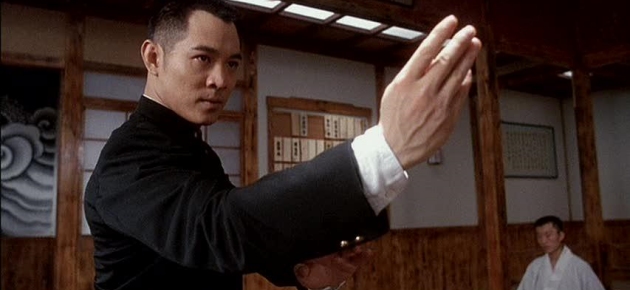
A remake of the aforementioned “Fist of Fury”, this film once again features Chen Zhen fighting Japanese martial artists, and it is considered one of the most impressive titles of both the protagonist, Jet Li, and the action choreographer, Yuen Woo Ping.
This time, Chen Zhen studies in Japan when he is informed that a Japanese fighter has killed his former master in a duel. Upset by the news, he decides to leave for Shanghai, and after he visits his master’s grave he swears to avenge his death. However, upon his fight with his master’s killer, whom he beats easily, he realizes that some foul play must have been involved, and decides to investigate further.
Yuen Woo Ping took advantage of Jet Li’s martial arts abilities and created a number of incredible action scenes, with the added difficulty of having too many actors present simultaneously. Most notably, the extended battle between Chen Zhen and the Japanese sensei played by Yasuaki Kurata is one of the most impressive in both of their careers.
Furthermore, Gordon Chan included themes of love, jealousy and betrayal, creating in that fashion a more serious film than the original, which included more comic elements.